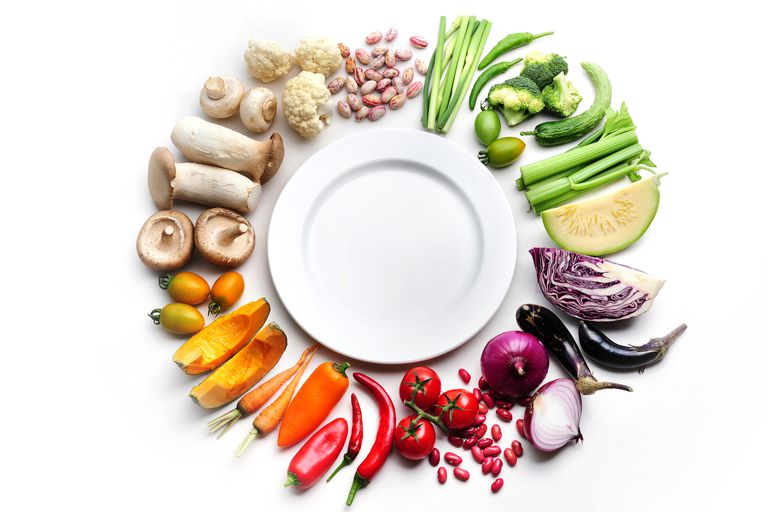The Paleo Diet – A Thyroid Warning
One Aspect of Paleo and Caveman Diets May Be Trouble for Thyroid Problems
While many aspects of the “Paleo” style eating, including the elimination of foods that can trigger inflammation, like grains and gluten, may benefit thyroid patients, one aspect of the Paleo style diet requires an additional warning.
The issue is that most Paleo diets recommend avoiding dietary salt and most dairy products. Table salt and dairy products are common sources of dietary iodine for many Americans.
While no one disagrees that reducing salt intake or cutting back on some dairy could have benefits for health and weight loss, iodized table salt is a key source of iodine for many people, and iodine is essential for proper thyroid function.
Paleo diets, also known as “ancestral eating” or “caveman diets,” have varying interpretations, but they generally emphasize :
- Whole foods in their original, unprocessed forms are preferred. Processed foods are not typically recommended.
- Grass-fed, hormone-free meats, eggs, and seafood are recommended.
- Pesticide-free and otherwise “organic” vegetables are preferred.
- Some fruit, nuts, and seeds are included.
Paleo diets usually recommend avoiding foods that commonly trigger inflammation, allergies, food sensitivities, and other reactions, including:
- Grains, and especially gluten
- Legumes and beans
- Sugar
- Processed foods
- Dairy
- Salt
These dietary guidelines have become increasingly popular as part of anti-inflammatory protocols to control autoimmunity, including thyroid autoimmunities like Hashimoto’s disease and Graves’ disease.
According to a recent study conducted in Sweden, women who ate according to a modified Paleo diet over a two year period experienced mild to moderate iodine deficiency, compared to other subjects who were following a “Nordic Nutrition” guidelines-based diet, which recommends:
- Sufficient intake of monounsaturated fats
- Limiting of saturated fats
- 25-35 grains daily of dietary fiber
- Sufficient but not excessive protein
- Limited added sugars
- Increased vitamin D and selenium-rich foods
- Regular moderate intensity activity weekly
A group of researchers from Sweden presented these results at the annual meeting of the American Thyroid Association in 2013. The Paleo dieters were eating a high-protein, high-fat, low-carbohydrate diet focusing on lean meat, fish, fruits and vegetables, eggs and nuts. They excluded all gluten, grains, beans, refined foods, sugar, salt, and sodas.
The Paleo group’s iodine levels decreased significantly at the two-year point. In addition, median TSH levels rose after 2 years, and the Free T3 levels decreased in the Paleo group after six months, while those in the Nordic diet group did not.
About Iodine Deficiency
Iodine is necessary for optimal thyroid function. Iodine is the raw material — used by the thyroid gland — to produce thyroid hormone. Without iodine, we cannot produce thyroid hormone.
A severe iodine deficiency can cause hypothyroidism, and even developmental brain disorders and severe goiter (enlargement of the thyroid gland.) Less severe iodine deficiency is linked to hypothyroidism, thyroid enlargement, and hyperthyroidism.
At the other end of the spectrum, excessive iodine intake — both severe and moderate — is also associated with hypothyroidism and goiter, and with worsening of Hashimoto’s autoimmune thyroid disease.
While iodine deficiency was thought to be eliminated in many countries (included the U.S.) where salt was iodized, low levels of iodine are increasingly being seen, due to the increasing use of diets that deliberately exclude iodized salt and iodine-rich foods like dairy.
What Should You Do?
Paleo diets can be healthy and may lower inflammation and help with weight loss.
You should, however, ensure that you are getting enough iodine. If you eliminate iodized salt and dairy products from your diet, you may want to make sure that you are taking a multivitamin that includes iodine, or include some iodine-rich foods in your diet.
Some of the most iodine-rich, non-dairy foods include:
- Sea Vegetables, including kombu, wakame, seaweed salads
- Cranberries
- Navy Beans
- Strawberries
- Codfish
- Turkey breast
- Tuna
- Eggs
- Baked potato
Source: verywell.com
“The Paleo Diet – A Thyroid Warning” by: Mary Shomon


